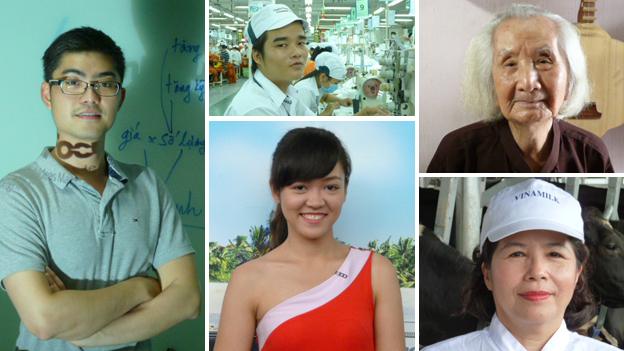Working Lives Vietnam
- Published

It is 40 years since the US began to withdraw its troops from Vietnam, marking the beginning of the end of what the Vietnamese call the "American" war.
The Communists are still in charge yet following reforms Vietnam has emerged as one of the sharpest clawed of the Asian tiger economies. Over the last two decades it has been undergoing a spectacular economic boom. But growth has recently slowed.
For Working Lives, the BBC's Justin Rowlatt has been to the centre of Vietnam's commercial life, Ho Chi Minh City - the city formerly known as Saigon. Justin met five people living and working in a country going through a period of epic change.
Much of the country's recent growth is reckoned to be down to the Communist Party's economic reform process which included large scale privatisation of state companies.
Mai Kieu Lien piloted Vietnam's biggest dairy company into the private sector and has overseen its growth into the largest private listed company in Vietnam and one of Asia's largest dairy companies.
The manufacturing sector has been key to Vietnam's recent growth but it is never going to lift workers like Huynh Van Hai or, for that matter Vietnam, into a higher income bracket.
The challenge for the country's leaders is to build industries that add more value. Nguyen Trung Hieu is part of Vietnam's booming high tech sector. He works as a software engineer in an internet start-up company.
But not all of Vietnam's small army of new graduates can find good jobs.
Nguyen Le Lan Huong trained in hotel management but can not find work in the sector. Instead she promotes products on the streets of Ho Chi Minh City as a 'PG' or 'promotional girl'. She is wondering how long she can continue before she is forced to return to the village where she grew up.
At 96, Vinh Bao is still working. He is one of Vietnam's oldest people and one of the last virtuosos in the country's traditional music. He plays and teaches the zither and has a few words of advice for Vietnam's leaders.